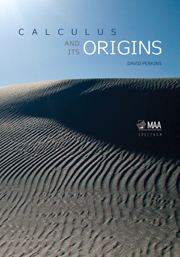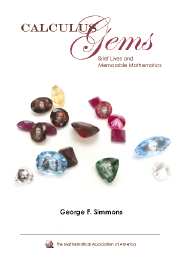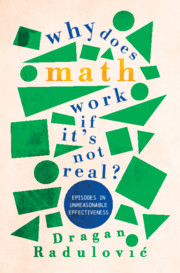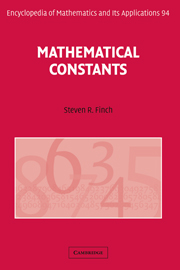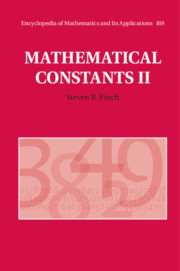Calculus and Its Origins
Calculus answers questions that had been explored for centuries before calculus was born. Calculus and Its Origins begins with these ancient questions and details the remarkable story of how subsequent scholars wove these inquiries into a unified theory. This book does not presuppose knowledge of calculus, it requires only a basic knowledge of geometry and algebra (similar triangles, polynomials, factoring). Inside you will find the accounts of how Archimedes discovered the area of a parabolic segment, ibn Al-Haytham calculated the volume of a revolved area, Jyesthadeva explained the infinite series for sine and cosine, Wallis deduced the link between hyperbolas and logarithms, Newton generalized the binomial theorem, Leibniz discovered integration by parts, and much more. Each chapter ends with further results, in the form of exercises, by such luminaries as Pascal, Maclaurin, Barrow, Cauchy and Euler.
- Exercises introduce further historical figures and their results and make it possible for a professor to use this book in class
- Knowledge of calculus is not presupposed: this book is accessible to those with a basic knowledge of algebra and geometry
- Covers the story beginning in ancient Greece and climaxing with the discovery of calculus
Product details
April 2012Hardback
9780883855751
180 pages
260 × 182 × 14 mm
0.46kg
This item is not supplied by Cambridge University Press in your region. Please contact Mathematical Association of America for availability.
Table of Contents
- Preface
- 1. The Ancients
- 2. East of Greece
- 3. Motion
- 4. Indivisibles
- 5. Quadrature
- 6. The Fundamental Theorem of Calculus
- 7. Notation
- 8. Chords
- 9. Zero over zero
- 10. Rigor.

